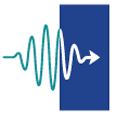This is SORMA West 2016 legacy information made available to give you an idea of what SORMA West 2020 will be like.
Radiation Measurements — Concepts and Misconceptions
Valentin T. Jordanov
labZY, Inc., Santa Fe, NM
The salient characteristic of radiation measurements is the discrete nature of the measured substance. The radiation manifests itself as energetic quanta that are emitted and interact with the radiation detectors randomly in time. In addition, the radiation measurement signals are always subject to statistical fluctuations due to the nature of the radiation-matter interactions and the detector signal generation.
Various concepts address the challenges presented by the amplitude and the temporal randomness associated with the radiation measurements. These concepts are often associated with other science and engineering fields such as electronics, physics, chemistry, mechanical engineering and others. The measurement concepts in general are dynamic – new ones are often created, old ones are forgotten, some are improved and some are resurrected. With these dynamics come misconceptions – some less profound, some with a more lasting and perhaps noticeable impact.
In this presentation we are analyzing few of these concept-misconception relationships. They can be very simple – for example, the concept of counting rates, random in nature, and the misconception of using the deterministic frequency measurement unit Hz. The more complex concept-misconception controversy is associated with the concept of analytical spectroscopy performance and the misconception that it can be maintained at any counting rate using adaptive pulse processing. Other concept-misconception topics are also presented in view of a generalized model of radiation measurement systems.
